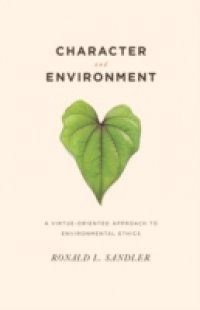Virtue ethics is now widely recognized as an alternative to Kantian and consequentialist ethical theories. However, moral philosophers have been slow to bring virtue ethics to bear on topics in applied ethics. Moreover, environmental virtue ethics is an underdeveloped area of environmental ethics. Although environmental ethicists often employ virtue-oriented evaluation (such as respect, care, and love for nature) and appeal to role models (such as Henry Thoreau, Aldo Leopold, and Rachel Carson) for guidance, environmental ethics has not been well informed by contemporary work on virtue ethics.With Character and Environment, Ronald Sandler remedies each of these deficiencies by bringing together contemporary work on virtue ethics with contemporary work on environmental ethics. He demonstrates the many ways that any ethic of character can and should be informed by environmental considerations. He also develops a pluralistic virtue-oriented environmental ethic that accommodates the richness and complexity of our relationship with the natural environment and provides effective and nuanced guidance on environmental issues.These projects have implications not only for environmental ethics and virtue ethics but also for moral philosophy more broadly. Ethical theories must be assessed on their theoretical and practical adequacy with respect to all aspects of the human ethical situation: personal, interpersonal, and environmental. To the extent that virtue-oriented ethical theory in general, and Sandler's version of it in particular, provides a superior environmental ethic to other ethical theories, it is to be preferred not just as an environmental ethic but also as an ethical theory. Character and Environment will engage any reader with an interest in environmental ethics, virtue ethics, or moral philosophy.

